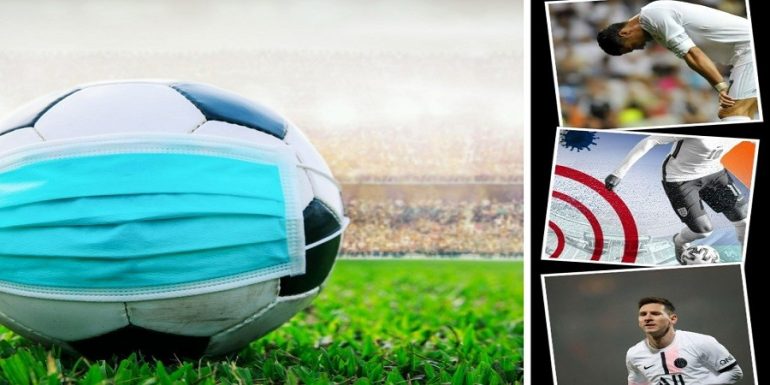One of the biggest sports institutions that has been affected by the effects of the coronavirus is certainly the football field. Every day, both in Cyprus and worldwide, we hear about new cases of players and players in the teams, a fact that makes it difficult for the sport to function properly.
Very few top-level players whose lives were seriously endangered by Covid, but the long-term effects of the virus are now visible in the game, with a study suggesting that even the quality of a player's pass can be adversely affected.
There have been several cases of its serious effects Covid-19 which prevented the players from returning to the field immediately after the negative test for the virus.
Bayern Munich midfielder Joshua Kimich, who was not vaccinated, missed two months of action due to a lung injury, while Juventus striker Paolo Dimbala said he had "shortness of breath" when he returned in 2020 after testing positive.
Even seven-time Ballon d'Or winner Lionel Messi has admitted he needed "more time than expected to recover" after being sustained by Covid during the winter break.
There were also some serious cases in professional football.
Newcastle goalkeeper Carl Darlow has been hospitalized for three days, Montpellier winger Junior Sambia has been treated in the intensive care unit and Nantes' Jean-Kevin Augustine has not started a first team match since 2019 due to long-term C.
But many coaches have also expressed fears in recent weeks of short-term and medium-term effects.
"When players have the virus and then come back, it is not done with just a click of their fingers. "Even they feel it, it takes time," said France World Cup winner Didier Deschamps.
Researchers from the universities of Düsseldorf and Reading found the results of a study of 257 Bundesliga and Serie A players who returned after suffering from Covid, which suggests that performance levels have also fallen.
The study found that the success rate of players decreased by up to five percent and that the virus had a more serious effect on players over the age of 30.
According to the research, the teams with the most players that had recovered from Covid had worse results than their opponents.
"So far, the results suggest a permanent change in the player's skills," said James Reade, director of finance at the University of Reading and co-author of the study.
"Most of the players were not vaccinated (at the time of the study) and that remains a complicating factor," he added.
There have been reports of players battling heart disease, including Gabon's duo Pierre-Emerick Aubameyang and Mario Lemina, both of whom left the African Cup of Nations to recover from Covid.
However, the medical director of the French Football Association, Emanuel Orhard, stated that there is no clear link between the virus and the increased risk of heart problems for footballers.
He found in December 2020 that 2,2 percent of the 350 players tested positive had a heart problem.
"Everything was mild and disappeared within a few weeks and it is impossible to say that everything was related to Covid," Orhant told AFP.
However, he said that the players needed more time to recover from the Covid than usual from the flu.
"We know the virus has an impact on short-term respiratory function," Orhant said.
"With the flu, we can bring the players back on the pitch as soon as they are better. "This requires more recovery time," he said
However, as the vast majority of cases in European countries are now caused by the Omicron variant, the effects are expected to be much less serious.
"We can no longer talk about Omicron in the same way we talked about the first infections, which were much more unpleasant," Orhant added. "Today, most players have almost no symptoms."
